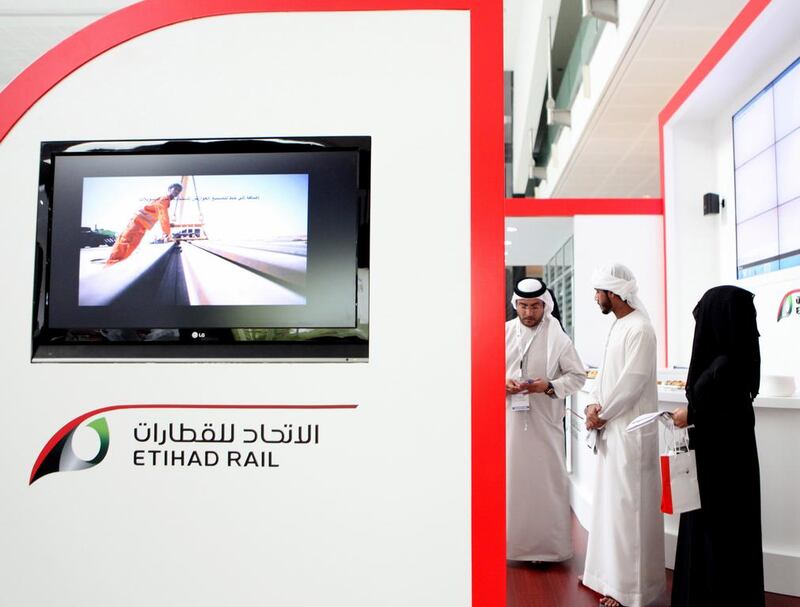The first phase of Etihad Rail is in testing and will be operational by the end of this year, a company official said yesterday.
The broader, region-wide GCC rail project appears to be farther along in the UAE than it is in neighbouring countries that are also meant to be part of the network.
“Stage one, which is currently under construction, is almost finished and we are testing it,” John Lesniewski, the sales director at Etihad Rail, said yesterday at the Middle East Rail conference in Dubai. “We see operations starting from the end of 2014.”
The first stage comprises a 266-kilometre route for carrying sulphur from Shah and Habshan to Ruwais.
The second stage, Mr Lesniewski said, will run from the Saudi Arabian border to Dubai and Al Ain, and will be part of the wider regional network.
Stage two has been tendered and evaluated, he said.
“We are close to awarding these tenders and we expect construction will start between now and the summer. We plan to make it connected to the GCC by 2018,” he said.
Stage three – the final stage of the network – will be in the Northern Emirates to bring products from the mountain areas to industrial areas in the rest of the country.
However, some Arabian Gulf countries, including Oman, have said they could miss a 2018 deadline for the GCC network.
“I cannot say that there will never be a delay,” said Abdulrahman Al Hatmi, the director at Oman National Railway. “You should understand that this is a real construction market. They [the Omani government] should have awarded a contract last year, but they haven’t yet.
“We will award the first contract by the end of this year. The prequalifications for the design and built will be by the end of March. Hopefully, we tender in August and after we qualify, we will invite the shortlisted to start the bid.”
The stretch of track in Oman will be 170km long.
Mr Al Hatmi said the Omani segment of the GCC project is considered the most expensive per kilometre, because of mountainous terrain and could cost more than US$3 billion.
Mr Al Hatmi said the Omani government would consider going to the debt market either by the end of the year or when the contract is about to be awarded.
“We don’t have an issue with financing. However, we are tied up with the 2018 delivery line. If you want to close a deal of financing it takes time to do that,” he said.
Separately, Kuwait said that there would also be a delay from its side.
“I think there will be a delay [to the GCC rail project], we hope that we meet the 2018 deadline. However, a delay can be extended until the end of 2019,” said Mansour Al Badr, the chairman of the advisory committee for the railway and metro project in Kuwait.
“We are in the phase of hiring consultants to design the project,” he said.
selgazzar@thenational.ae





